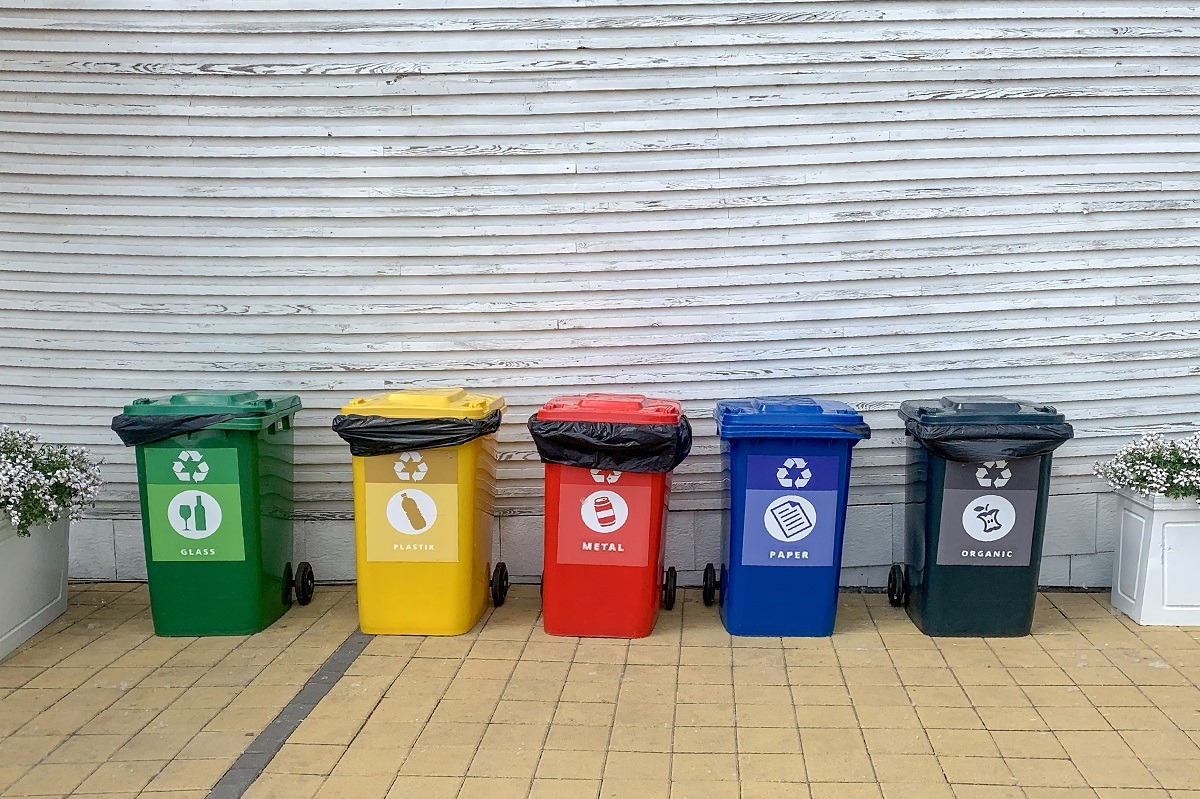CALL NOW FOR A FREE QUOTE 866.760.8194
Simple Ways and Tips to Stay on Target with Your Commercial Recycling Goals
Businesses of all sizes can help do their part in controlling the amount of waste they are generating by developing and implementing a commercial recycling program. Most organizations do not pay attention to the volume of waste materials generated. Their recycling and waste management plans simply focus on waste hauling and trash removal.
From fast-food chains, restaurants, hotels, and casinos to industrial manufacturing, offices, retail stores, and schools, the volume of waste materials generated could be reduced by recycling materials using these steps to stay on target with your recycling goals.
1. Identify the types of waste generated by your business.
The first step is to review the different types of waste your business generates. This could include food waste, paper waste, plastic waste, and so on. By gaining a better understanding of what waste is generated, you can start to think about what materials could be reused and recycled.
2. Determine what materials could be reused by your business.
The next step is to think about various materials you could reuse multiple times rather than tossing them in the trash. For example, plastic bottles with cleaning products could be reused by refilling them with the same cleaning product.
By doing this, you can purchase bulk sizes of cleaning products and refill the smaller bottles. It is a win-win because you save money by purchasing larger bulk sizes and are also cutting down on the amount of waste generated by your business.
3. Determine what materials could be recycled.
The next thing you want to do is look at what materials you are not presently recycling that you could like papers, plastics, glass, and metals. Even if your business cannot reuse them, it does not mean there are not businesses out there that will pay for your recyclables.
4. Evaluate what equipment you need to achieve commercial recycling goals.
There are commercial balers and compactors that can help with recycling efforts. This equipment compacts and bales recyclables so you can transform the materials into neat, tidy cubes and bundles.
As an added bonus, compactors can also compact regular waste to fully utilize every inch of your commercial dumpster so you will need fewer pickups and save on trash hauling expenses.
5. Reassess and adjust your recycling objectives.
Once you have a commercial recycling plan in place, it does not mean you are done. You should reassess your recycling and waste management processes at least once a year. Annual reviews are important to ensure you are paying the lowest prices for waste management expenses, and you are not overlooking materials that could be recycled.
6. Team up with an experienced recycling and waste management consultant.

Conducting annual recycling and waste management audits, identifying what materials you could recycle, finding buyers for your recyclables, and staying on top of waste management contracts and expenses can be very time-consuming to do on your own.
By teaming up with experienced waste consultants, you have a single point of contact for anything recycling and waste management related. Not to mention, your consultants are constantly looking for new ways to help save your business money on your waste management and recycling of industrial waste expenses.
To request your free waste audit and discover how to increase your commercial recycling efforts and how you could save 30-40% or more on your recycling and waste management costs, please feel free to contact Global Trash Solutions at 866-760-8194 to speak with one of our waste consultants today!
Recent Post
Is Hiring a Waste Consultant Right for Your Business?
Managing waste and recycling needs poses a distinct hurdle for businesses focused on…
Read More >Understanding Scope 3 Emissions
Scope 3 emissions are an important component of a company’s total greenhouse gas…
Read More >